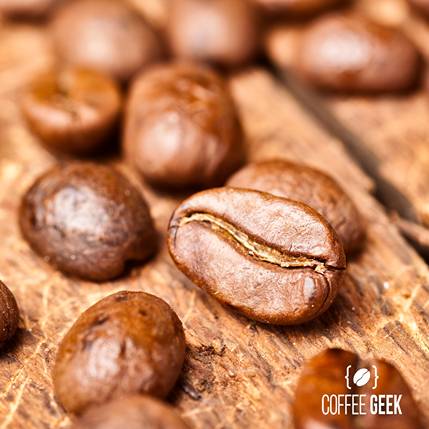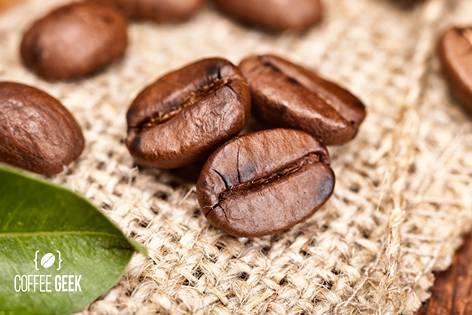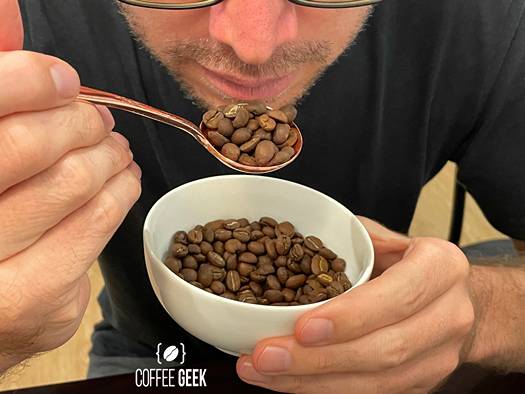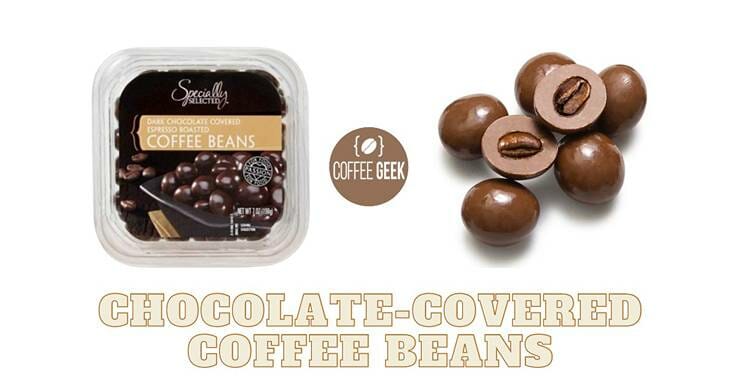Coffee lovers often look for new ways to enjoy their favorite beverage, and one way that’s gaining popularity is eating coffee beans. The question is how many coffee beans can you eat?
While it might seem like a strange idea at first, eating coffee beans can offer a unique taste experience as well as provide a convenient caffeine boost on the go.
Moreover, coffee beans have some potential health benefits and can be a delicious snack when consumed in moderation.
However, you might be wondering how many coffee beans you can safely eat and what risks you should be aware of.
With various factors like caffeine content and individual tolerance levels playing a role, it’s essential to be mindful when incorporating coffee beans into your diet.
Additionally, keep in mind that roasted coffee beans offer an enhanced flavor compared to their raw counterparts, but both can be consumed according to personal preferences.
Key Takeaways
- Eating coffee beans can be a tasty and convenient way to enjoy your caffeine fix
- Moderation is crucial due to varying caffeine content and individual tolerance levels
- Roasted coffee beans provide more flavor, but both raw and freshly roasted beans varieties can be consumed safely
The Basics of Coffee Beans
Coffee beans are the foundation of your favorite caffeinated beverage. They’re not only a source of energy but also a rich source of antioxidants.
Let’s dive into some basics to help you understand the difference between the two main types of coffee beans: Arabica and Robusta.
Arabica Coffee Beans
Arabica beans are the most popular type of coffee beans, accounting for about 60-70% of the world’s coffee production. These beans are usually grown at high elevations, which gives them a more delicate and nuanced flavor profile.
Arabica beans tend to be less bitter and have a softer, smoother taste with fruity and floral notes.

Arabica beans are also harder, green coffee beans that need roasting before you can enjoy them in your cup. The roasting process brings out the unique flavors and aroma that Arabica beans are known for.
Robusta Coffee Beans
On the other hand, Robusta coffee beans are a more resilient and easy-to-grow variety. They have a higher caffeine content and are known for their stronger and more bitter taste.
Robusta beans can be grown at lower elevations than Arabica, and they’re typically more resistant to pests and diseases.

Like Arabica beans, green Robusta beans need roasting to achieve the desired flavor for your brew. However, their roasting profile can vary based on the origin and growing conditions, producing a diverse range of taste experiences.
To sum up, both Arabica and Robusta coffee beans have their unique characteristics in terms of flavor, aroma, and caffeine content.
Your personal preference will guide you on which type of bean is the right one for your taste buds. So, go ahead and experiment with different beans to discover the world of coffee flavors that awaits you.
Eating Coffee Beans
Taste and Texture
When you choose to eat coffee beans, expect a different experience compared to drinking brewed coffee. The taste is naturally more intense, and the texture can be crunchy, depending on the roast level.
You might enjoy the strong flavors of espresso beans, which are simply coffee beans roasted darker. Just keep in mind that there’s a chance espresso beans could be harder on your teeth if they’re roasted too long.

It is not recommended to eat raw coffee beans, as they have a bitter taste and tougher texture. Roasting the beans helps to develop their flavor and bring out the natural oils, making them more enjoyable to eat. Remember that overindulging can lead to a high caffeine intake, so moderation is key.
Chocolate-Covered Coffee Beans
If you’re looking for a sweeter alternative, chocolate-covered coffee beans are a popular treat. These beans are coated in a layer of chocolate, which balances the taste, adding a pleasant sweetness to the robust coffee flavor.
So, how many coffee beans can you actually eat? Consuming 33 chocolate-covered beans per day is generally a safe amount, but be mindful of the extra calories from the chocolate.

Remember that when you eat coffee beans, the caffeine in them may affect you differently than it does when you drink brewed coffee.
To avoid negative effects, consume no more than 400 milligrams of caffeine daily, which equals about 30 coffee beans. If you’re sensitive to caffeine or pregnant, it’s best to limit your intake.
While coffee ice cream may seem like another alternative to eating coffee beans or drinking coffee, it usually contains brewed coffee and won’t offer the same taste experience.
So, go ahead and start those edible coffee beans a try if you’re looking for a unique way to enjoy your caffeine fix.
Caffeine Content and Safety
Daily Recommended Intake
When it comes to caffeine, it’s important to know your limits. For most healthy adults, up to 400 mg of caffeine per day is considered safe. This is roughly equivalent to four cups of coffee or about 10 cans of cola.
Keep in mind, though, that the actual caffeine content in beverages can vary widely.
In terms of coffee beans, consuming up to 300 coffee beans is generally safe and shouldn’t cause any ill effects. But remember, moderation is key to avoiding potential risks and side effects.
| Coffee Bean Type | Caffeine Content (per bean) | Number of Beans for 100 mg Caffeine | Number of Beans for 200 mg Caffeine |
|---|---|---|---|
| Arabica Coffee Beans | 1-2 mg | 50-100 | 100-200 |
| Robusta Coffee Beans | 2-2.7 mg | 37-50 | 74-100 |
| Espresso Coffee Beans | 6-9 mg | 11-17 | 22-33 |
Effects on Pregnancy and Breastfeeding
If you’re pregnant or breastfeeding, it’s crucial to pay even closer attention to your caffeine intake. Excessive caffeine consumption during pregnancy can increase the risk of pregnancy complications, such as early labor and low birth weight.
It’s typically recommended to limit your caffeine intake to 200 mg per day during pregnancy, which is about half the amount considered safe for non-pregnant adults.
As for breastfeeding, caffeine can pass into breast milk and potentially cause sleep disturbances in your baby. While there’s no specific limit for breastfeeding mothers, it’s wise to consume caffeine in moderation.
Remember, your body’s tolerance to caffeine might be different from others, so always pay attention to how you feel and consult your healthcare provider if you have concerns.
In summary, it’s definitely possible to enjoy coffee beans as a snack, but make sure to stay within the recommended guidelines to maintain proper health, especially during pregnancy and breastfeeding.
Keep an eye on your tolerance, and don’t hesitate to ask your healthcare professional for advice.
Health Benefits of Eating Coffee Beans
Antioxidants and Nutrients
Eating coffee beans can provide you with a variety of health benefits, primarily due to their rich content of antioxidants and nutrients.
By consuming coffee beans, you’re giving your body a dose of antioxidants, which protect your cells against free radicals and are linked to lower incidences of cancer, heart disease, and other illnesses.
In addition to antioxidants, coffee beans are a great source of fiber, giving your body the necessary nutrients to maintain a healthy balance.
Weight Loss and Metabolism
Green coffee beans, in particular, contain chlorogenic acid, which is known to have weight loss properties. This compound helps the body burn fat more efficiently and may improve your metabolism.
Moreover, it aids in regulating blood sugar levels and reducing inflammation, which can contribute to overall weight management.
By incorporating coffee beans into your diet, you can also experience positive effects on your mood and energy levels. The natural caffeine content found in coffee beans can help reduce fatigue and improve your mental alertness.
While maintaining a healthy diet and exercise routine is essential for weight loss, the addition of coffee beans can provide you with an extra boost to help reach your goals.
However, it’s essential to keep in mind that moderation is critical when it comes to consuming coffee beans. Overdoing it on caffeine can lead to adverse effects, such as increased blood pressure or jitteriness.
It is generally recommended to consume no more than 20-30 coffee beans a day, depending on your caffeine sensitivity.
So, go ahead and enjoy the many health benefits that coffee beans have to offer – just don’t forget that moderation is key.
Potential Risks and Concerns
In this section, we’ll discuss the potential risks and concerns associated with eating coffee beans. We’ll also cover how these issues could affect you and what precautions you can take to minimize them.
Digestive Issues
Eating coffee beans might lead to digestive issues like heartburn, nausea, and stomach upset. The natural acids and compounds present in raw coffee beans can cause these discomforts.
Additionally, consuming coffee beans has a laxative effect, which may lead to dehydration if you’re not careful. Make sure to limit your coffee bean consumption and stay hydrated to reduce these possible side effects.
Caffeine Overconsumption
While caffeine has its benefits, overconsumption can cause problems. Headaches and increased heart rate are common symptoms of consuming too much caffeine.
The recommended daily limit for caffeine is 400 milligrams, so be cautious when snacking on coffee beans – especially since they tend to have a higher concentration of caffeine compared to coffee.
Over time, your body may become dependent on caffeine, leading to withdrawal symptoms when you cut back or eliminate it from your diet.
These symptoms can include irritability, fatigue, and difficulty concentrating. Remember, moderation is key when consuming coffee beans to avoid these potential problems.
Alternative Forms of Coffee
Coffee Grounds
If you’re looking to explore new ways of consuming coffee, have you considered coffee grounds? Believe it or not, they can be used in a variety of ways. One option is to incorporate them into your cooking.
You can add coffee grounds to dessert recipes or even use them as a rub for meats. Just remember to use the grounds sparingly, as the flavor can be quite intense.
Another way to utilize coffee grounds is as a natural exfoliant. Mixing them with a bit of water or oil creates a homemade body scrub that can help remove dead skin cells and improve circulation. Plus, you’ll smell like a delicious cup of coffee.
Green Coffee Bean Extract
If you’re interested in a supplement derived from coffee, green coffee bean extract might be worth checking out. It’s made from unroasted coffee beans and is believed to have potential health benefits.
The extract contains chlorogenic acid, a compound thought to help with weight loss and blood sugar regulation.
You can find green coffee bean extract in various forms, such as capsules and powders. However, it’s essential to consult your healthcare provider before starting any supplement, especially if you have pre-existing medical conditions or are taking medications.
Keep in mind that although consuming alternative forms of coffee might be a fun change, there’s no substitute for the classic brewing of coffee with water.
Plus, let’s not forget about the joy of sipping on a steaming mug while enjoying a fresh fruit snack on the side. Happy experimenting!
Conclusion
Alright, let’s sum things up for you! You can safely eat coffee beans, but remember, moderation is key. The number of coffee beans you can eat depends on factors like your caffeine sensitivity and the bean type.
When you eat coffee beans, you might want to choose organic beans to ensure they’re free from excessive chemicals or pesticides.
Also, note that the caffeine content in arabica beans (3.41% per dry mass) is much lower than the 8.16% you’d find in robusta beans. So, the type of coffee bean you choose to eat can impact the amount of caffeine you’re consuming.
So, go ahead and enjoy the occasional coffee bean snack – but remember not to go overboard. And hey, here’s a pro tip: try chocolate-covered coffee beans if you’re in the mood for a sweet, caffeinated treat!
Frequently Asked Questions
What are the benefits of eating coffee beans?
Eating coffee beans can provide a quick caffeine boost and act as a source of antioxidants. These antioxidants help protect your body from damage caused by free radicals and can support overall health.
Do you get more caffeine when you eat coffee beans?
Yes, you might get more caffeine by eating coffee beans as opposed to drinking coffee. For a typical 8-ounce cup of coffee, you would consume around 7-10 beans. However, keep in mind that the amount of caffeine in coffee beans can vary depending on the type of bean and the roast level.
Can consuming coffee beans aid in weight loss?
While there is no direct evidence linking coffee beans consumption to weight loss, the caffeine in coffee beans may have a thermogenic effect on your body, helping increase metabolism and calorie burning.
However, it’s important to note that moderation is key, and relying solely on coffee beans for weight loss is not advisable.
What’s the difference between eating beans and drinking coffee?
Eating whole coffee beans provides a more concentrated source of caffeine and antioxidants compared to drinking brewed coffee. However, coffee can be easier on your digestive system and may offer a more enjoyable sensory experience, with its aroma and taste profile.
Which coffee beans are the best for eating?
For eating, consider opting for medium-roasted coffee beans to dark-roasted coffee beans, as roasted beans tend to be less acidic and more palatable.
Additionally, you may want to try flavored or chocolate-covered beans for a more enjoyable taste experience. It’s important to choose high-quality beans from reputable sources to ensure you’re consuming a safe and enjoyable product.
Is there a limit to how many beans you should eat?
Yes, there is a recommended limit to how many beans you can safely eat. It’s advised to consume no more than 20 to 30 coffee beans if you aren’t sensitive to them.
This amount equals around 400 milligrams of caffeine, which is the maximum daily intake for adults who aren’t pregnant or caffeine sensitive.

